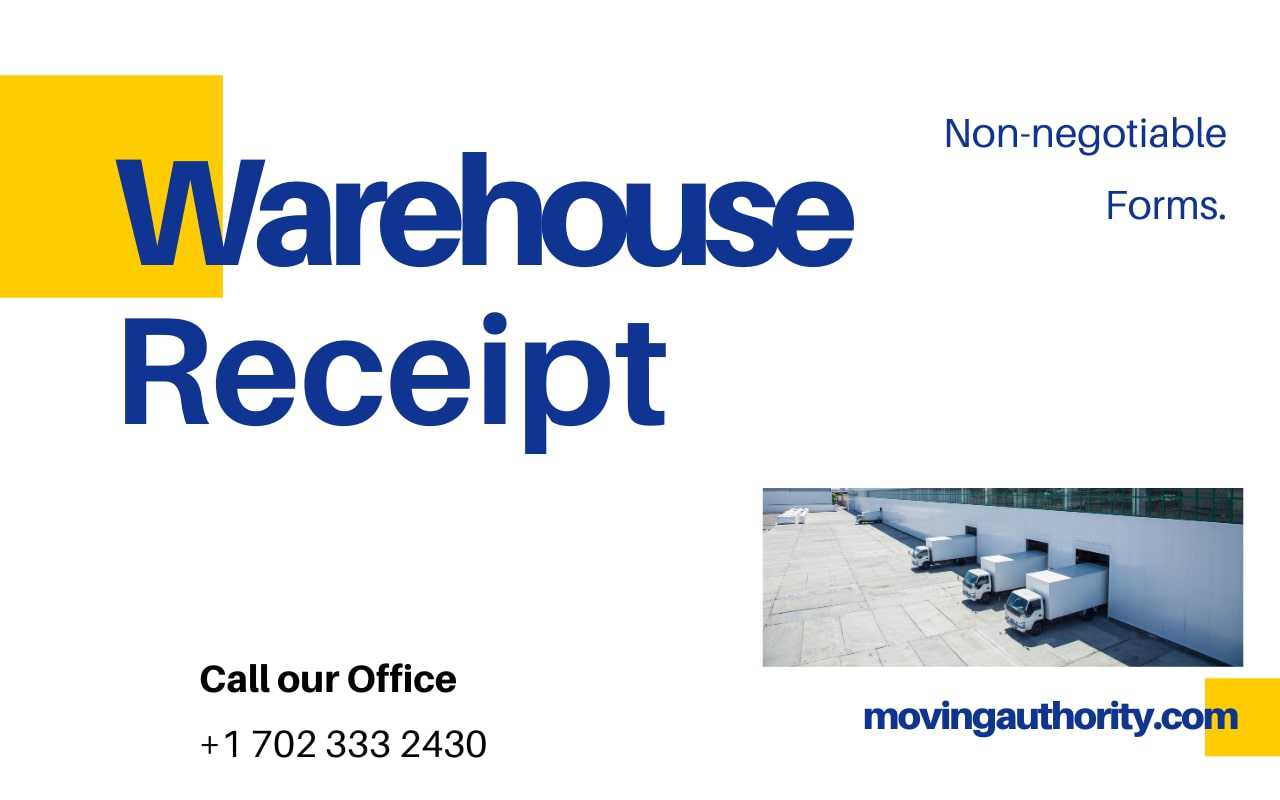

Warehouse Receipt $99
$ 99.00 Only



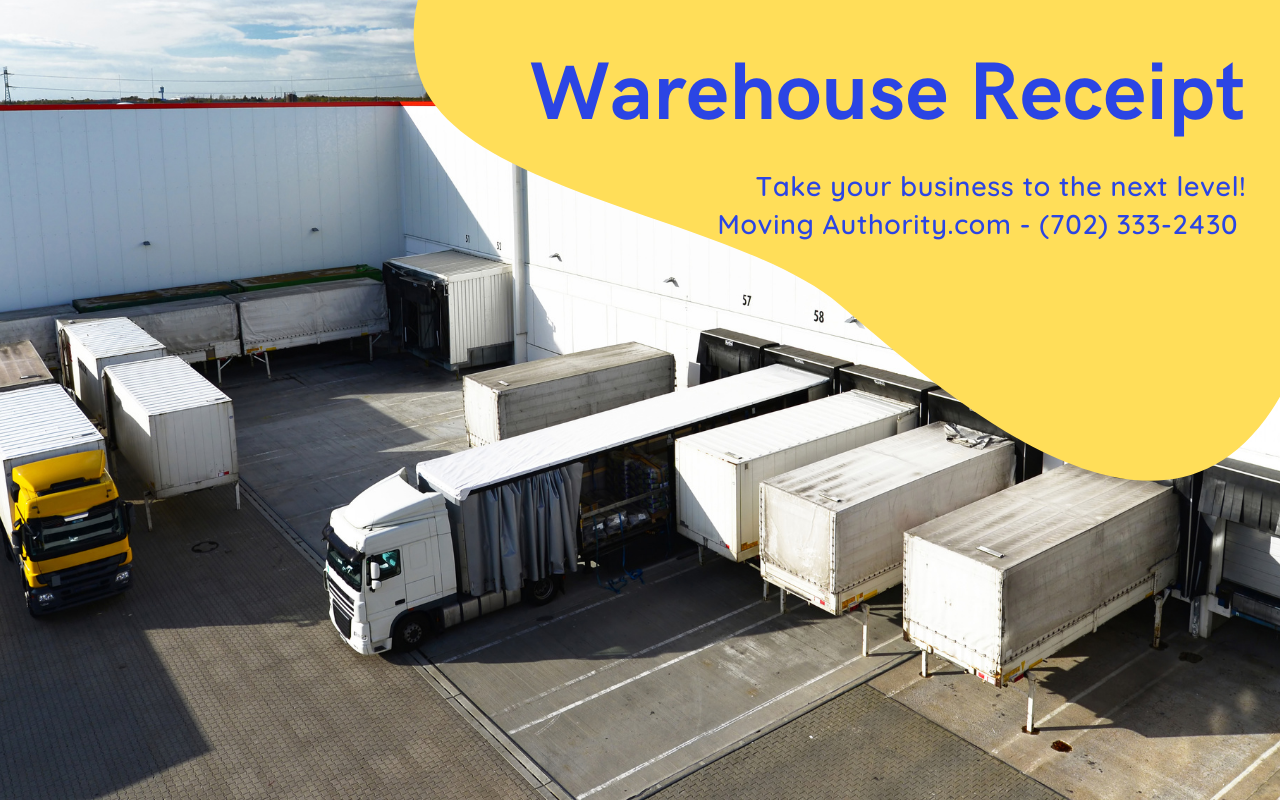
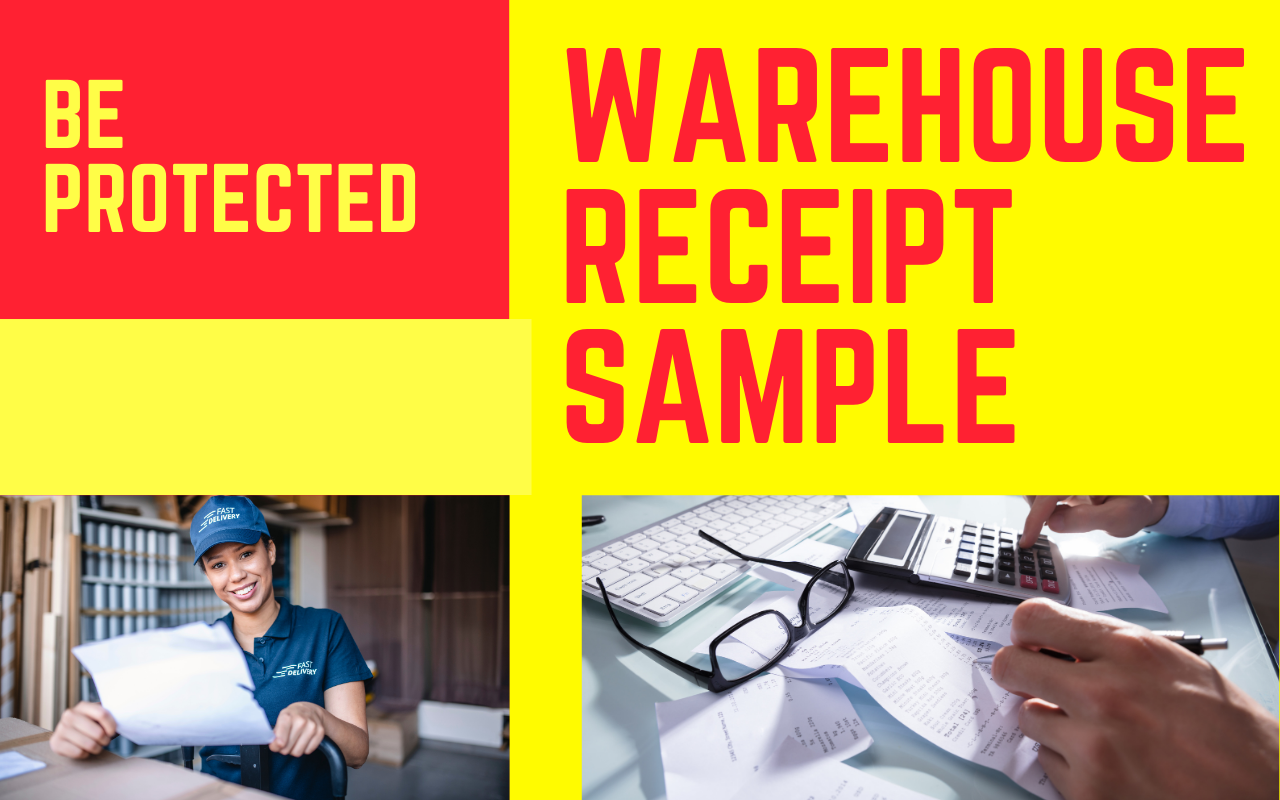

Product Code: 19
Product Description











Product Code: 19




If so, you're welcome to read the information below. It could help your company create a better system for giving a receipt to a customer. If you have any questions, do not hesitate to contact the Moving Authority team.
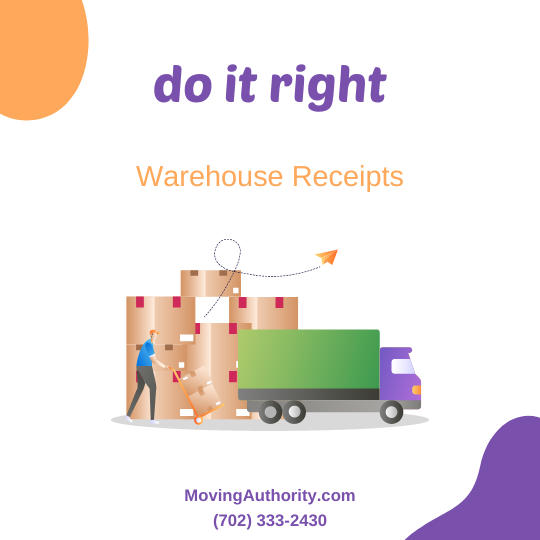
They offer legal proof that someone owns commodities stored within a warehouse. There are two types of warehouse receipts:
1. Negotiable warehouse receipts.
2. Non-negotiable warehouse receipts.
Carrier owners often get confused about what a non-negotiable warehouse receipt refers to. These receipts ensure that the transfer of ownership of an item can take place. But delivering the item does not need to happen. If that’s the case for your company, then the warehouse receipt should confirm it.
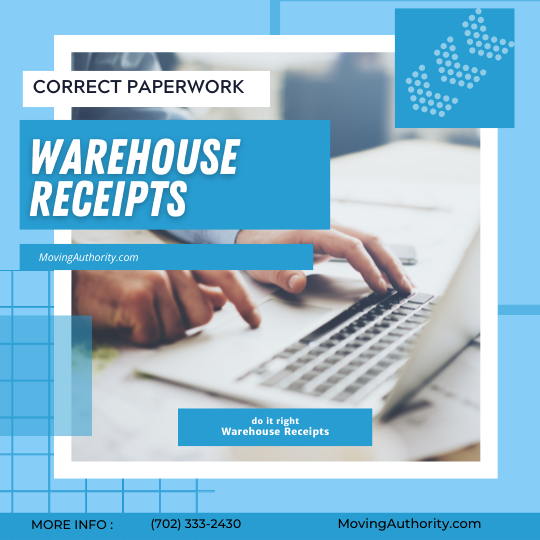
This means that they can serve as collateral when it comes to loans. So, what is one of the key differences of non-negotiable warehouse receipts? They have to get endorsed whenever a transfer takes place. Any warehouseman should keep this information in mind. US law regulates the majority of warehouse receipts. This gets based on the Uniform Commercial Code’s Article 7 section. Many jurisdictions use Article 7 as official policy that applies toward moving carriers.
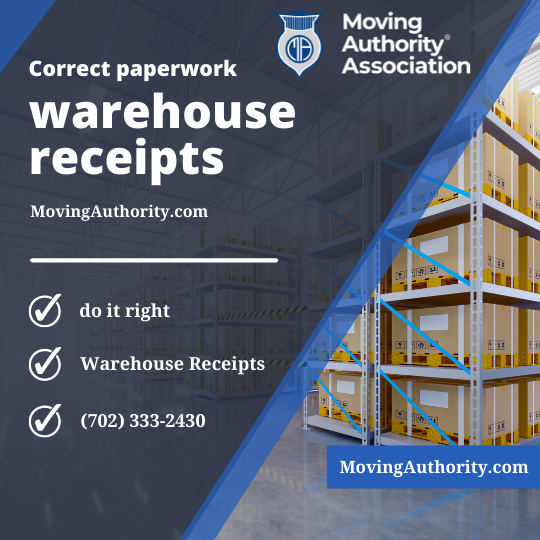
Each warehouse receipt should address the following three factors:
1. The quantity of the commodity that’s stored in a facility.
2. The type of commodity that’s stored in a facility.
3. The quality of the commodity that’s stored in a facility.
Warehouse receipts can also convey whenever a transfer of ownership takes place. This applies to the following two forms of delivery:
1. Delivery that will happen in the future.
2. Delivery that is immediate.
Sometimes organizations choose not to deliver a client’s commodities. When this happens, the receipt should feature an expiring futures contract.
They also address every unfinished good that gets stored within a warehouse. This applies to both distributors and manufacturers. Many companies depend on warehouse receipts due to their importance in futures markets. The receipt is the best proof of what physical condition stored goods are in. This applies to all types of warehouse facilities.
Say that there is no warehouse receipt. This means that there is little-to-no proof that a commodity exists within a warehouse. Plus, there's little evidence that proper documentation has gotten verified within the warehouse. A warehouse owner should have certain quality standards that the employees adhere to. Once the standards are in place, the framework for a warehouse receipt now exists. Next, a warehouse receipt template can get used with all requirements in mind.
Warehouse receipts should get used whenever a customer stores a product. Otherwise, how can a product get claimed if there is no receipt? A storage contract should specify a company’s warehouse receipt policy. This is so both staff and customers will understand how the warehouse process works. Also- say you need help creating quality warehouse receipts for your company. If so, please call or email our organization right now. Our staff can help you set up a winning warehouse receipt system. That system will help ensure that your warehouse staff is in complete compliance. Plus, the receipt system is simple so that customers can understand it with ease.
Here is a personal example of the importance of using a warehouse receipt. Say that Mary Collins, a grocery store owner, talks to a baker. She decides to order a big shipment of cookies. But here’s the specific situation. The cookies have not yet gotten made. Yet, Mary has signed her name on a contract with the baker. Signing the contract means that Mary has agreed to the price of delivery. The signing also means that Mary has agreed to the exact quantity of cookies. This is the case even though the cookies are not yet available to her.
Fast-forward to when the cookies are available. Mary now becomes the owner of the number of cookies that she purchased. So, here’s where the warehouse receipt comes into play. Mary gets provided with a receipt. This replaces the act of having the cookies delivered to her grocery store. The receipt features complete details about the location of the stored cookies.
Mary now has options thanks to looking at the receipt. She can opt to have as few or many cookies delivered to her store as she would like. Why does Mary have this legal option? It’s all about her receipt listing the goods (cookies). The receipt proves that she has ownership of her goods. This type of receipt process applies to more than grocery store owners. It applies toward many warehouse storage situations. And using a high-quality receipt system is the key.
Moving companies must pay close attention to their warehouse receipt terms and conditions. Receipt information is as important as the bill of lading terms and conditions. Both of which convey legal liability that applies toward each customer. Plus, a receipt shows the exact level of responsibility that moving companies have. After all, the customer’s goods are in the care of warehouse workers. This means that a carrier has control and custody of all stored items. The amount of control and custody depends on what each receipt displays. This is why every receipt must appear 100 percent accurate.
A contract should feature certain conditions limiting the liability of the moving company. The conditions should state that a contract’s terms adhere to a company’s legal liability. This receipt-related concept also applies to elements of negligence. There are insurance policies that can help protect companies from problems within warehouses. The policies sometimes get called the Warehouseman’s Legal Liability insurance policy.
The receipt framework helps to move and storage companies stay covered when problems arise. Or, when there is any level of confusion about a receipt. It helps prevent carriers from spending thousands of dollars for a warehouse mistake. A very similar form of legal protection applies toward the bill of lading. Coverage also protects companies when problems happen relating to the bill of lading. Keep in mind how insurance companies determine whether to deny or pay for a claim. It's based on specific legal liability conditions. Those conditions should get written into every moving company’s contract. Also, think of these conditions when crafting a receipt.
Contract review matters when it comes to warehouse receipts. Moving company owners are sometimes faced with emergencies. A warehouse manager could call at any moment and state that there’s a big problem. For example, flooding could take place within a company’s warehouse. Once again, this is why moving and storage companies should have quality insurance. It is to protect against emergencies that relate to warehouse receipts. Otherwise, a moving company risks getting its claims denied. Sure, the receipt might already limit the company’s liability. But that’s not enough protection. The next line of defense is contract-review.
Say that your contract features outdated warehouse protections or tariff wording. (Sometimes you have to slow down and go word for word.) This can restrict the coverage of your company in the blink of an eye. That’s why it’s best to ensure that your warehouse insurance policies are up-to-date. Doing so will help prevent coverage from getting restricted.
There's no way around it. Legal liability can make or break the success of moving and storage companies. Let’s continue the example. Say that your contract mentions flood exemption. But the definition of “flood” is broad and open-ended. Your company’s claim could still get denied. This is why you should turn to a professional service that can help you stay protected. Otherwise, having an open-ended receipt system could come back to haunt you.
A warehouse receipt’s purpose is to reinforce two key concepts:
1. A moving and storage company’s level of negligence.
2. A moving and storage company’s legal liability.
So, what are you waiting for? Contact our organization today if you need help adjusting your receipt process. Our team of experts will help make sure that you have adequate protection. Next thing you know, your warehouse receipts could improve your company's operations.
Would you like to learn more free information about how to set up a warehouse receipt system? If so, our experts can share that information with you at any moment. Moving Authority is passionate about helping businesses succeed. Instead of selling or trading our information, we prefer to give it away. Why? Because we know how difficult it is to maintain the financing of any moving company. There’s always an obstacle when it comes to transporting and storing goods. Speaking of storing goods, we’re ready to provide you with more receipt tips. All it takes is one phone call, email, or message. Our team will then help you develop the best receipt system in the industry.
Leave a review
Take a few minute to give your value review about our product